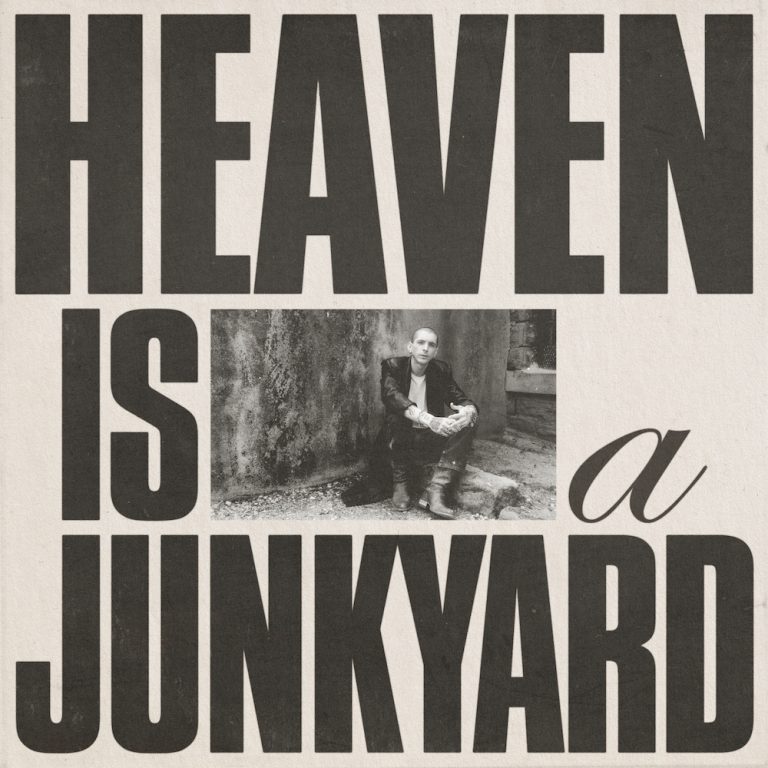Following an over-the-counter drug reaction that lingered for eight months and led to the temporary loss of his voice, Trevor Powers resurrects the Youth Lagoon moniker, which he retired in 2016 following the 2015 release of Savage Hills Ballroom. The resulting project, Heaven Is a Junkyard, is Powers’ most hook-oriented and arresting set, the Idaho-based artist basking in newfound confidence despite his clear awareness that so much of life remains uncontrollable.
While Powers’ previous work as Youth Lagoon and subsequently under his own name consistently explored the marriage of opposites – the earthly and celestial, the natural and mechanistic, the nirvanic and dystopian – Junkyard is his most lyrically and vocally centric project. Sublimities are achieved largely through winning melodies, intriguing lyrics, and nuanced vocals more so than sonic gestalts, as was chiefly the case with previous outings, including the effervescent Wondrous Bughouse (2013) and creepier Capricorn (2020). That is, Junkyard is no less than Powers’ confirmation party as a pop-minded and enormously gifted singer-songwriter.
Opener “Rabbit” centers on dreamy images that rouse a sense of mystery (“face to thе floor / and there ain’t no magic door”) while leaning toward the horrific (“no one ever saw the blood / on the birthday party blouse”). Powers’ melody is mesmerizing, reminiscent of those liminal moments when a narcotic starts to take effect. His perspective indicates that he’s close enough to the content for it to be vital but not so enmeshed that he can’t embrace a panoramic view.
The stunning “Idaho Alien” is built around a sleepy piano part and languid drumbeat. Powers’ melody is unshakeable, his lyrics enchanting (“filling the tub and waiting for God / therе was sadness in the water too”). The glorious “Prizefighter” is a candidate for song of the year, integrating oblique lyrics that invoke ennui and a melody that defines transportive. The austere “The Sling” shows Powers at his most vocally vulnerable. “What makes me lose my head / love and memory,” he sings, interweaving grief and equanimity, his voice on the verge of cracking.
“Trapeze Artist” features lines that could easily land as disparate collage elements but instead are contextualized by Powers’ vocals and languid melody. “I’m sick and I’m scared and I’m high on a trapeze”, Powers sings, offering a visceral metaphor. “I’m ready to jump / if your angel can catch me”, he adds toward the song’s end. The track functions as a mystical supplication, as if Powers is commencing a rite of passage or spiritual initiation.
“Mercury”, meanwhile, blends the angsty and euphoric, Powers’ melody complemented by percussive elements and gossamer synth accents. “Does heaven glow / glow like mercury?” he asks, conjuring the spectrum of suffering and salvation that each of us navigates in the course of a lifetime or, perhaps, a single moment.
“Helicopter Toy” synthesizes familiar compositional and pop elements, including elegant melodic, lyrical, and vocal pivots, the piece unfolding as a breathtaking anthem and seamless merging of tunesmithery and sonic architecture. Midway, heavier guitars muddy the field, representing turbulence, the track veering toward the austere as it closes. In this way, the 10-song, 34-minute project crescendos, Powers perfecting his multifaceted craft while forging one of 2023’s more hypnotic sequences.


